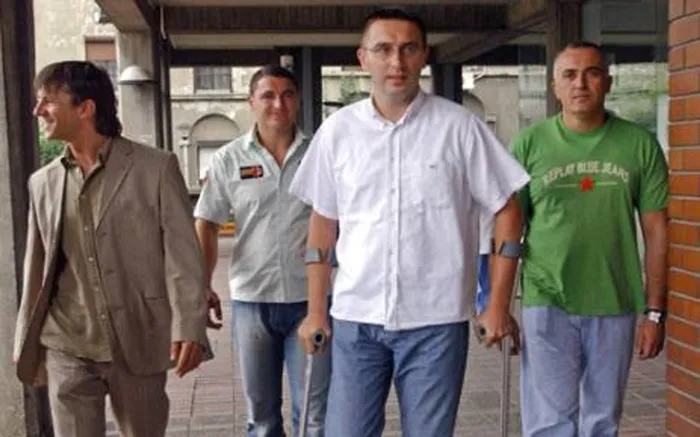Suspected Serbian hitman to fight extradition after losing ConCourt fight

Dobrosav Gavric (2nd left), Milan Djurisic (left), Stojan Rankovic (2nd right) and Vujadin Krstic walking to a Belgrade court in September 2006. File picture: AFP Dobrosav Gavric (2nd left), Milan Djurisic (left), Stojan Rankovic (2nd right) and Vujadin Krstic walking to a Belgrade court in September 2006. File picture: AFP
Suspected Serbian hitman Dobrosav Gavric looks set to face extradition to his home country after the Constitutional Court ruled on Friday that he was not a candidate for refugee status.
Gavric has spent the past seven years in prison after his true identity was discovered following the murder of suspected Cape Town underworld figure Cyril Beeka. Gavric had reportedly been living in South Africa using the name Sasa Kovacevic, working with Beeka and even driving the vehicle transporting him when Beeka was assassinated in March 2011.
While Gavric was wounded, it was after he was released from hospital that he handed himself over to the Hawks after they became aware who he was.
Gavric fled Serbia in 2007, entering South Africa illegally following the assassination of Eljko Ranatovic, a military commander known as Arkan who was aligned with the Miloevic government during the Yugoslav conflict in the 1990s. The Serbian government believed Gavric was responsible for the killing, and its courts sentenced him to 30 years' imprisonment in 2008 in his absence.
However, despite attempts by Serbia to extradite Gavric, he managed to stall the process by applying for refugee protection in January 2012.
He applied on the grounds that he had been incorrectly identified as a member of a political group that orchestrated Arkan’s assassination and had fled the country in fear of his life.
The Refugee Status Determination Officer (RSDO) initially refused Gavric’s application, using a section from the Refugees Act that ordered he was ineligible for such refugee status because he had committed a serious, non-political crime.
In the intervening years, Gavric has insisted that this was the wrong decision, leading to a series of court battles and even suggestions that the Refugee Act be altered.
However, on Friday, the Constitutional Court found that Gavri was not entitled to refugee status due to having probably committed a non-political crime, and that his arguments were contradictory. Gavri had argued that he had not committed any crime - claiming he was not involved in Arkan’s murder - but also that if he had committed the crime, it was politically motivated.
The court acknowledged that the Serbian courts had dealt with four appeals on the murder case, with four separate entities agreeing that Arkan’s killing was not politically motivated, and was likely for monetary gain.
“while there is credible evidence to support a reasonable belief that the applicant has committed a serious crime, there is no basis upon which this court can find that this crime was politically motivated,” the Concourt ruled. Because of this, Gavric was excluded from refugee status.
However, it will be up to Gavric and his legal team to argue extradition - it’s likely that his argument will be he believes his life is in danger should he be returned to Serbia.